Philadelphia’s avant-garde music scene has a loyal ally in Solar Myth and its Ars Nova Workshop promoters, who put together a 2025 show calendar (celebrating Ars Nova’s 25th anniversary) as jam-packed as it is dazzlingly comprehensive. (What’s up with Philly experimental bookers going over the top… have you seen the last couple of Making Time lineups???) All the “big” names of the experimental underground seem to make it a point to swing through Solar Myth nowadays – I’m pretty sure Marshall Allen has a private bedroom suite upstairs – and as I live a mere ten-minute walk away from the club (and a pleasant one at that), the only thing stopping me from attending on a weekly basis is the average $40+ ticket price. On back to back nights in early May, I splurged on incomparable noise-guitar duo Body/Head and multi-faceted virtuoso percussionist Valentina Magaletti.
Night one– Prompt to the minute, video curator 1-800-HOT-DUCK aka Chrissy Marie Jones opened with a half-hour edited montage at 8:00 PM, the footage true to her indispensable Instagram account (which is, easy enough, @1800hotduck). Clips were plucked from a variety of odd and off-the-beaten-path sources like public-access comedy, nihilistic underground art film, fetish clips, funny news reports and even an incredible Johanna Went music video, which reminded me to pull out her LP again soon. Though the typical Sonic Youth-enthusiast audience seems to somehow maintain an average height of six feet, I’m on the taller end of the spectrum and was lucky enough to view a good 70-80% of the projection screen broadcast in front of the standing-room-only crowd. Not everyone could say the same, however, so I hope they found their way to her Instagram page, or picked up a VHS at the merch table.
The crowd thickened in the interim between 1-800-HOT-DUCK and Body/Head, and I maintained my spot towards the center-back as well, a glass of rosé steadily warming in my hands. As luck would have it, Aaron Dilloway appeared on stage first, setting up one of his reel-to-reels, an unannounced guest added to the advertised Body/Head duo of Kim Gordon and Bill Nace. Fans will of course recognize that Body/Dilloway/Head released an album on Three Lobed back in 2021 – I confirmed that this was only their second time performing live as a trio. I didn’t purchase my ticket with the expectation of witnessing faithful renditions of my favorite Body/Head “songs”, and I’d assume the same went for the rest of the audience, so Dilloway’s addition was a welcomed surprise.

The set, consisting of a single piece that neared an hour, opened with one of Dilloway’s tape loops, a soft cyclical pattering as Gordon and Nace assembled themselves. Unhurried yet focused, the two guitarists linked into a harmonic web early in the set, a loosely psychedelic moment of beauty that I hadn’t anticipated. I was prepared for dual cascades of frothy feedback to attack my senses but the set lacked much in the way of outward aggression – another nice surprise. Even Dilloway, celebrated for his uncontrollably spastic physical performances, barely twitched in place. More time was spent in transitional phases than any sort of locked-in mode, with melancholic or buzzing motifs reacting to the patterns and varying intensities of Dilloway’s tape rig. Gordon would crouch down for minutes at a time, hidden by the crowd’s front row while presumably tinkering with her various effects, leaving Dilloway concentrating hard at his desk and Nace the energetic cornerstone of the trio, steering his guitar from an arrangement of angles and applying varying degrees of pressure, as likely to furiously strum the strings at the bridge of his instrument as grab the body of the guitar with two hands and shake as if he intended to pour martinis from it. Gordon sang infrequently, and when she did, the stark body of her voice took over – she wasn’t mixed any louder than her fellow performers, but her bassy frequency and unblinking delivery commanded our full attention, even as her words were affected enough as to remain inscrutable. Her final vocals were two full-bodied, Junko-esque screams, a pair of blood-curdlers that would normally communicate a lack of control, but even those felt impartial and constrained in her hands, one of the many sonic implements she’s spent decades accumulating. After navigating minutes of blissfully abstracted terrains, Dilloway and Nace eventually opened their eyes, looking like graduates of rival vo-tech schools in their navy-blue and army-green button-ups; Gordon shifted her gaze away from the middle-distance to acknowledge her fellow players for the first time, and as easily as the abstract and distant storm-clouds of their performance rolled in, their set concluded.
Night two– For as much as I enjoy the claustrophobic thrill of smushing myself into a packed room of bodies being blasted by loud music, I was relieved to note that Valentina Magaletti’s performance was billed as a seated show. Ars Nova takes care right down to the smallest detail, so these folded chairs weren’t standard issue Home Depot cheapos – they offered some padded support that only twenty-somethings would take for granted. (If anyone in attendance was in their twenties, I didn’t clock them – it felt like a safe space for the forty-and-up crowd.)
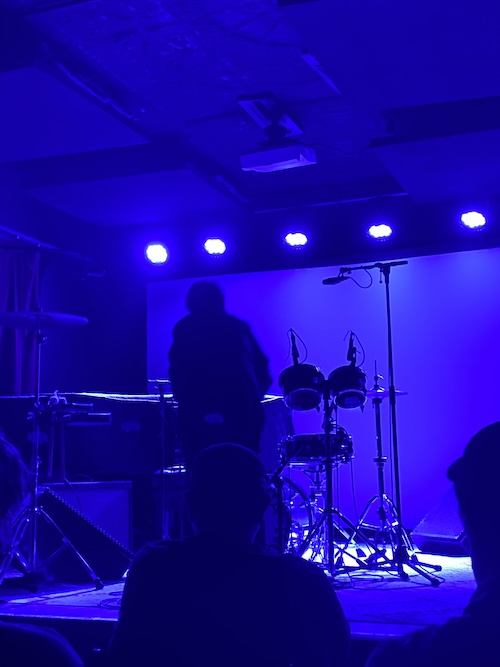
As soon as the house lights dimmed, Valentina Magaletti hopped onto the stage and crawled towards a small assortment of hand cymbals, wood blocks and resonant metal pieces. On her hands and knees, and fully enveloped in the array of pieces before her, Magaletti displayed the posture of a curious child deep in the throes of Lego. She clattered, clacked and popped the implements in front of her, all of which were run through actively-evolving forms of echo and reverb; the sound of a shaker might reproduce its own backwards mirror image, the smack of a drumstick on muted metal tumbled into cavernous echo. It was a small highlight of her set for me, the sheer incomprehensibility of how and why the sounds were mutating in real-time. The dim lighting and her huddled position obscured any chance I had of gaining answers to my questions, but that was a good part of the fun – I had no choice but to sit back and allow myself to be dazzled.
While still on the floor, Magaletti began to engage with the expensive-looking trap kit (the kick head adorned with a box-fresh Ars Nova Workshop logo) from the outside in. Maneuvering her way around the kit, she rose up and proceeded to tear it a new one, hustling through the swirl of influences that echo her recorded and collaborative material: jazz fluidity, airtight breakbeats, studied funkiness and playful exploration. She let out a loud cackle, and then proceeded to shout “hit / after hit / after hit / after hit” with each subsequent, uhh, hit, maybe a baker’s dozen she deemed worthy to describe out-loud to us. The set then led her to the other arranged gear on stage, including multiple tuned wood blocks, various toms and a brief tryst with a vibraphone. Throughout, additional backing tracks were piped through the PA, a variety of sounds ranging from steady rhythm tracks to more obscure sounds I’d associate with chains dragged across a table or idling dirt-bike engines. The backing tracks provided a bit of guidance, pushing her into different rhythmic conversations (and percussive stations). I’m of two minds with this: on one hand, it sounded dope as hell and her choice of backing sounds was inspired, but on the other, I would’ve been perfectly content for my ears to only hear the sounds that Magaletti cooked up live in front of me – if that meant the occasional silence or awkward moment, so be it. It’s clear to me that pre-recorded music in a live setting has become the norm, no matter if you’re a kvlt power-metal band or a fashion-forward cold-wave duo or a global pop-star, but its all-encompassing infiltration doesn’t mean I have to uncritically embrace it. Or at least, I can regret for Milli Vanilli’s sake that they were born two generations early. I could also say “Han Bennink wouldn’t need a backing track”, but I’m sure if he was here right now and I asked him, he’d be totally down to play with one and see what might happen. Maybe I need to loosen up and embrace a little technology once in a while… or not.
The best part of the set, in my estimation, came about forty minutes in, when a young woman ran up to the stage, hopped on, and started going buck-wild on the floor cymbals as Magaletti hammered away at the kit. I could feel the audience tense up around me for a good four or five seconds, all sharing my same confusion – was this person invited, or are the bum-rushing the show? – but as Magaletti seemed entirely unperturbed, we relaxed and settled into the added cacophony of this unknown guest’s rapid-fire clanging. After a good five minutes, the guest hopped back off, and Magaletti settled us back on solid ground with some soothing tones and a slowed, conversational approach to her kit. The backing track provided a calming loop, appropriate for end-credits, Magaletti thanked “Jessica”, and the lights came up. Back to the bar for a drink with Chris Forsyth, who was in attendance at both gigs as well, it turns out. Hell, he’s probably back at Solar Myth right now, and I wish I was too.
Birth (Defects) Deceiver / Mirror LP (Reptilian)
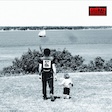 It’s wild to think of how long Reptilian Records has been at it, as a shop (since 1989!) and a record label (since 1993), always supportive of loud guitars in reasonable proximity to Baltimore and the unstable personalities that wield them. Baltimore’s Birth (Defects) have been a band for over ten years, and recently decided to release their first full-length, enabling them to be seen as a “real band” by the few remaining people who maintain an interest in real bands, on this label that has nothing to prove to nobody. Deceiver / Mirror is my first time checking them out, and I was surprised to discover that even with a member credited solely with “electronics”, their sound is straightforward primal grunge (where’s the noise, just in the intro?), directly linkable to Nirvana’s epoch-inaugurating Bleach. Throw on “Doubts” and tell me you don’t hear it, that pep-rally bounce and ennui-soaked vocals direct from Nirvarna, aggro-bent riffs from the woodshed out back. Flip the record and “Under” delivers a strikingly similar sensation, riff and vocal chock full of snarling Cobainisms. As far as influences go, you can’t dispute Birth (Defects)’s sound, and while I would’ve expected something a little more esoteric from these folks – they could’ve gotten heavy into Ultra Bide or Bowery Electric and I’d still be down – these songs are nice, and presently out of time with the predominant forms of ’90s revival culture (shoegaze, trip-hop, alt-rock). I hope for their sakes they pulled it off without fudge-packing, crack-smoking and Satan-worshipping.
It’s wild to think of how long Reptilian Records has been at it, as a shop (since 1989!) and a record label (since 1993), always supportive of loud guitars in reasonable proximity to Baltimore and the unstable personalities that wield them. Baltimore’s Birth (Defects) have been a band for over ten years, and recently decided to release their first full-length, enabling them to be seen as a “real band” by the few remaining people who maintain an interest in real bands, on this label that has nothing to prove to nobody. Deceiver / Mirror is my first time checking them out, and I was surprised to discover that even with a member credited solely with “electronics”, their sound is straightforward primal grunge (where’s the noise, just in the intro?), directly linkable to Nirvana’s epoch-inaugurating Bleach. Throw on “Doubts” and tell me you don’t hear it, that pep-rally bounce and ennui-soaked vocals direct from Nirvarna, aggro-bent riffs from the woodshed out back. Flip the record and “Under” delivers a strikingly similar sensation, riff and vocal chock full of snarling Cobainisms. As far as influences go, you can’t dispute Birth (Defects)’s sound, and while I would’ve expected something a little more esoteric from these folks – they could’ve gotten heavy into Ultra Bide or Bowery Electric and I’d still be down – these songs are nice, and presently out of time with the predominant forms of ’90s revival culture (shoegaze, trip-hop, alt-rock). I hope for their sakes they pulled it off without fudge-packing, crack-smoking and Satan-worshipping.
C.A.D & The Peacetime Consumers Play Atlantis LP (Dot Dash Sounds)
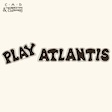 Chris Durham’s musical interests run the gamut from pleasant to decidedly un-, a sonic omnivorousness that I cannot help but respect. I am still contentedly jamming the excellent recent full-length from his Church Shuttle moniker (rhythmic American junk noise par excellence), but his work with The Peacetime Consumers flips his twenty-sided die to a cleaner, more traditional rock style. Play Atlantis is by-the-books garage-rock with trad-psychedelic edges, a startlingly direct, big-band sound. Okay, I guess there’s only a meager three Consumers alongside Durham, but they stuff these songs with horns, bongos, electric keys (both organ and piano) and even some lap-steel and sitar to the point where it feels like a large-scale ensemble. Can’t imagine how they crammed all that stuff in their borrowed station wagon to get it to the studio, but they made it work! I’ve got nothing but love for Durham and his Peacetime Consumers, but the songs that comprise Play Atlantis are so safely retro that I’m having trouble connecting with this new album. They cut a path in the same worn grooves as countless burn-outs before them, and lack the pathos of Roky Erickson, the grit of Fred and Toody Cole or the earworm songwriting of even the least-popular Kinks records. Nothing wrong with that, of course – not every rock band has its own shooting star – but I’m gonna go back to Church Shuttle the next time I need a Chris Durham fix, which is actually right now, come to think of it.
Chris Durham’s musical interests run the gamut from pleasant to decidedly un-, a sonic omnivorousness that I cannot help but respect. I am still contentedly jamming the excellent recent full-length from his Church Shuttle moniker (rhythmic American junk noise par excellence), but his work with The Peacetime Consumers flips his twenty-sided die to a cleaner, more traditional rock style. Play Atlantis is by-the-books garage-rock with trad-psychedelic edges, a startlingly direct, big-band sound. Okay, I guess there’s only a meager three Consumers alongside Durham, but they stuff these songs with horns, bongos, electric keys (both organ and piano) and even some lap-steel and sitar to the point where it feels like a large-scale ensemble. Can’t imagine how they crammed all that stuff in their borrowed station wagon to get it to the studio, but they made it work! I’ve got nothing but love for Durham and his Peacetime Consumers, but the songs that comprise Play Atlantis are so safely retro that I’m having trouble connecting with this new album. They cut a path in the same worn grooves as countless burn-outs before them, and lack the pathos of Roky Erickson, the grit of Fred and Toody Cole or the earworm songwriting of even the least-popular Kinks records. Nothing wrong with that, of course – not every rock band has its own shooting star – but I’m gonna go back to Church Shuttle the next time I need a Chris Durham fix, which is actually right now, come to think of it.
Commodo & Gantz 89! Gloom 12″ (Ilian Tape)
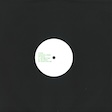 Let it be known that Ilian Tape is truly the biggest bang for your buck when it comes to buying vinyl records from today’s top-shelf underground electronic producers. Their roster is deep, varied and devoid of throwaways, and if you live in the US and decide to purchase a copy of 89! Gloom by Commodo and Gantz right now, it’d come to an extremely reasonable $24.09 (and a cheaper overall unit price if you picked up more than one record to pad out the shipping cost). That’s my sales pitch, and really, you should pick up a copy of this new collaborative EP between British producer Commodo and Istanbul’s Gantz based on the strength of the tunes, nice-price be damned. Even in 2025, you could probably file this EP under dubstep, but “Left Hand Path” is so big and disgusting that it would dislodge the half-inch gauged ear-piercings of all dubstep wobble-drop bros within a mile radius. It sounds like filthy water sloshing on an expanse of quicksand bass, its three-hit drum-break counting time as I slowly fade face-down into my carpet. The title track is a more traditional dubstep affair in that it pairs a Knight Rider arpeggio with violent cyber-blade tricks and a freight elevator in an abandoned science facility that only goes down, but it’s been a while since I’ve heard anyone approach this style with such, umm, style. “Shake And Lurk” kind of self-describes – there’s a hustle and a mystique happening here that could only come from a British-Turkish allegiance, though my twenty bucks was well spent on “Left Hand Path” alone.
Let it be known that Ilian Tape is truly the biggest bang for your buck when it comes to buying vinyl records from today’s top-shelf underground electronic producers. Their roster is deep, varied and devoid of throwaways, and if you live in the US and decide to purchase a copy of 89! Gloom by Commodo and Gantz right now, it’d come to an extremely reasonable $24.09 (and a cheaper overall unit price if you picked up more than one record to pad out the shipping cost). That’s my sales pitch, and really, you should pick up a copy of this new collaborative EP between British producer Commodo and Istanbul’s Gantz based on the strength of the tunes, nice-price be damned. Even in 2025, you could probably file this EP under dubstep, but “Left Hand Path” is so big and disgusting that it would dislodge the half-inch gauged ear-piercings of all dubstep wobble-drop bros within a mile radius. It sounds like filthy water sloshing on an expanse of quicksand bass, its three-hit drum-break counting time as I slowly fade face-down into my carpet. The title track is a more traditional dubstep affair in that it pairs a Knight Rider arpeggio with violent cyber-blade tricks and a freight elevator in an abandoned science facility that only goes down, but it’s been a while since I’ve heard anyone approach this style with such, umm, style. “Shake And Lurk” kind of self-describes – there’s a hustle and a mystique happening here that could only come from a British-Turkish allegiance, though my twenty bucks was well spent on “Left Hand Path” alone.
Cube Lucky Numbers & True Weight LP (Digital Regress)
 “Industrial-synth post-punk” feels like too reductive of a term for Adam Keith’s Cube, but it’s as reasonable of a GPS pin-drop as any. I’m sure Cube starts from somewhat familiar sonic territories, but it jumps from that moving train pretty quickly, pursuing wilder, woolier zones where synths are teased and tortured, rhythms deceive the ears and scary nonsense that should never be heard in the first place somehow works as a memorable hook. On Lucky Numbers & True Weight, Cube’s fourth vinyl LP (among at least a dozen cassette-only releases), it’s still a frenzied one-man show, but a new virus has entered the DNA: breakbeat jungle. I’m kind of surprised there have been so few attempts at integrating hardcore rave / drum n’ bass into the post-punk underground; I suppose its not an overly compliant ingredient to assimilate, more like horseradish than sesame oil. The few attempts I’ve seen seem to already come from dance-centric entities, not the basement-dwelling antisocial creeps from whom the best experimental post-punk is derived. Anyway, Cube absolutely excels at this jungle breakbeat integration, creating neither brooding post-punk nor underground rave but a separate new third thing, menacing and foreboding and thrilling in its own right. The album-defining cut is “Terms Of Service”, like if Doormouse remixed Patois Counselors and it turned off both of their core audiences. Even with no obvious path forward, Cube is out there hacking at the brush, making his own.
“Industrial-synth post-punk” feels like too reductive of a term for Adam Keith’s Cube, but it’s as reasonable of a GPS pin-drop as any. I’m sure Cube starts from somewhat familiar sonic territories, but it jumps from that moving train pretty quickly, pursuing wilder, woolier zones where synths are teased and tortured, rhythms deceive the ears and scary nonsense that should never be heard in the first place somehow works as a memorable hook. On Lucky Numbers & True Weight, Cube’s fourth vinyl LP (among at least a dozen cassette-only releases), it’s still a frenzied one-man show, but a new virus has entered the DNA: breakbeat jungle. I’m kind of surprised there have been so few attempts at integrating hardcore rave / drum n’ bass into the post-punk underground; I suppose its not an overly compliant ingredient to assimilate, more like horseradish than sesame oil. The few attempts I’ve seen seem to already come from dance-centric entities, not the basement-dwelling antisocial creeps from whom the best experimental post-punk is derived. Anyway, Cube absolutely excels at this jungle breakbeat integration, creating neither brooding post-punk nor underground rave but a separate new third thing, menacing and foreboding and thrilling in its own right. The album-defining cut is “Terms Of Service”, like if Doormouse remixed Patois Counselors and it turned off both of their core audiences. Even with no obvious path forward, Cube is out there hacking at the brush, making his own.
Danse Macabre Danse Macabre LP (General Speech)
 It’s gonna be wild in ten, twenty years for the people still excavating and reissuing the first- and second-waves of punk and hardcore. What will be left, Michiro Endo’s cousin’s solo-guitar practice tapes? Live recordings of Roger Miret’s brother-in-law’s blues-rock band? It feels like we’ve been scraping this barrel for years, but of course its within those barrel scrapings that surprising finds can reveal themselves; speaking for myself, the prospect of greatness in a forgotten, discarded scrap of punk has yet to lose its thrill. General Speech has done a masterful job of poking around in the dustiest, most ignored corners of international punk, and they pulled out a retrospective collection here from Danse Macabre, the metallic death-rock band formed by Katsunori “Cherry” Nishida after his stint with Zouo, whose sole, seismic seven-inch EP is as iconic as it is obscure. Danse Macabre offer a sound true to the mid-’80s in which it existed, somewhere between Samhain and your average cut-out bin Combat Core release of the era. It’s plodding and sinister, and if you squint hard enough, it’s certainly possible to convince yourself that you might actually like it. I’m such a fan of Cherry that this collection hits alright enough for me, although their cover of “Born To Be Wild” is the textbook definition of inessential. Unlike many classic punk story arcs, Cherry has not only managed to stay alive – he continues to be cool as hell in a scary kind of way, currently kicking ass in S.H.I., whose electronics-infused, black-acid punk is heavier and more aggressive than hardcore bands half their age. By the time the S.H.I. reissue comes out, I should be able to use my social-security bitcoins to purchase a copy.
It’s gonna be wild in ten, twenty years for the people still excavating and reissuing the first- and second-waves of punk and hardcore. What will be left, Michiro Endo’s cousin’s solo-guitar practice tapes? Live recordings of Roger Miret’s brother-in-law’s blues-rock band? It feels like we’ve been scraping this barrel for years, but of course its within those barrel scrapings that surprising finds can reveal themselves; speaking for myself, the prospect of greatness in a forgotten, discarded scrap of punk has yet to lose its thrill. General Speech has done a masterful job of poking around in the dustiest, most ignored corners of international punk, and they pulled out a retrospective collection here from Danse Macabre, the metallic death-rock band formed by Katsunori “Cherry” Nishida after his stint with Zouo, whose sole, seismic seven-inch EP is as iconic as it is obscure. Danse Macabre offer a sound true to the mid-’80s in which it existed, somewhere between Samhain and your average cut-out bin Combat Core release of the era. It’s plodding and sinister, and if you squint hard enough, it’s certainly possible to convince yourself that you might actually like it. I’m such a fan of Cherry that this collection hits alright enough for me, although their cover of “Born To Be Wild” is the textbook definition of inessential. Unlike many classic punk story arcs, Cherry has not only managed to stay alive – he continues to be cool as hell in a scary kind of way, currently kicking ass in S.H.I., whose electronics-infused, black-acid punk is heavier and more aggressive than hardcore bands half their age. By the time the S.H.I. reissue comes out, I should be able to use my social-security bitcoins to purchase a copy.
Erika de Casier Lifetime LP (Independent Jeep Music)
 Seems like Copenhagen is really “having a moment” in as much as progressive, avant pop music is concerned, varied in styles and sounds but unified in time and place. Check the roster: Astrid Sonne rules (hell yeah “Do You Wanna”); I find myself getting deeper and deeper into ML Buch’s Suntub; Smerz’s R&B/indie/electronic hodgepodge is appealing; I need to peep that Fine album on the strength of that great recent single (along with anything else on Escho I recently missed); and Erika de Casier might be the coolest of them all. She’s a versatile pop vocalist – I first encountered her on DJ Central’s blissful deep-house standout “Drive” back in 2017 – and while previous material has leaned in direction of the fashion-forward club, Lifetime is introspective and downtempo, a soothing synthesis of so many low-key pop and R&B elements both retro and new. Working with a clear understanding of what made so many Janet Jackson, Sade and Brandy songs shine (with a heaping spoonful of the Donna Lewis classic “I Love You Always Forever”), de Casier flips it for the Euro cool kids hanging in cafés and on grassy riverbanks. Tempos are relaxed, with lush, intimate-moment synths, trip-hop drum loops and de Casier’s soft-as-silk vocals, her lyrics placing real-life moments inside pink clouds of scattered emotion, as if she figures herself out best by turning her inner thoughts into songs. (From “The Garden”: “You see me there, I’m standing outside / I can’t remember where I put my bike last night”.) Many of these ideas are delivered in under three minutes, like the excellent “Delusional”, which uses Cypress Hill’s “Insane In The Brain” horse-whinny sample alongside a back-and-forth chorus that has me thinking of Cam’ron’s “Hey Ma” (while ultimately sounding nothing like either). Her musical vocabulary is deep and full of curiosity, and the resulting Lifetime makes for one of the best chill-out sessions you can have this year.
Seems like Copenhagen is really “having a moment” in as much as progressive, avant pop music is concerned, varied in styles and sounds but unified in time and place. Check the roster: Astrid Sonne rules (hell yeah “Do You Wanna”); I find myself getting deeper and deeper into ML Buch’s Suntub; Smerz’s R&B/indie/electronic hodgepodge is appealing; I need to peep that Fine album on the strength of that great recent single (along with anything else on Escho I recently missed); and Erika de Casier might be the coolest of them all. She’s a versatile pop vocalist – I first encountered her on DJ Central’s blissful deep-house standout “Drive” back in 2017 – and while previous material has leaned in direction of the fashion-forward club, Lifetime is introspective and downtempo, a soothing synthesis of so many low-key pop and R&B elements both retro and new. Working with a clear understanding of what made so many Janet Jackson, Sade and Brandy songs shine (with a heaping spoonful of the Donna Lewis classic “I Love You Always Forever”), de Casier flips it for the Euro cool kids hanging in cafés and on grassy riverbanks. Tempos are relaxed, with lush, intimate-moment synths, trip-hop drum loops and de Casier’s soft-as-silk vocals, her lyrics placing real-life moments inside pink clouds of scattered emotion, as if she figures herself out best by turning her inner thoughts into songs. (From “The Garden”: “You see me there, I’m standing outside / I can’t remember where I put my bike last night”.) Many of these ideas are delivered in under three minutes, like the excellent “Delusional”, which uses Cypress Hill’s “Insane In The Brain” horse-whinny sample alongside a back-and-forth chorus that has me thinking of Cam’ron’s “Hey Ma” (while ultimately sounding nothing like either). Her musical vocabulary is deep and full of curiosity, and the resulting Lifetime makes for one of the best chill-out sessions you can have this year.
DJ Trystero Cantor’s Paradise LP (Felt)
 The Felt label has dropped some ace records lately, generally in the field avant/experimental electronics, where abstraction and texture take precedence over hook or melody. That’s cool with me, and I’m digging DJ Trystero’s newest, which prioritizes texture over basically anything else. It’s like a dub-techno record without the bass, or Jan Jelinek’s pivotal Loop-Finding-Jazz-Records without any whiff of IDM, or the lonely industrial of Anne Gillis without the psychosis… whatever you want to compare Cantor’s Paradise to, its form has probably been reduced in one way or another. All the tracks are untitled (yet handily numbered), and it’s not until “Untitled 6” that melodic chords first appear, coasting over lightweight swishes in a manner that recalls Actress at his most shades-down stoic. Don’t worry though, “Untitled 7” crawls right back into the stalactite-riddled underground cave, like Jay Glass Dubs if he were allowed only a hi-hat (open and closed) to fashion his landscapes. If you’re looking to dig deep and strike oil with a rich sonic palette, search elsewhere – the brittle, crackling textures of Cantor’s Paradise flake and shimmer like mica, emotionless yet beautiful upon close examination.
The Felt label has dropped some ace records lately, generally in the field avant/experimental electronics, where abstraction and texture take precedence over hook or melody. That’s cool with me, and I’m digging DJ Trystero’s newest, which prioritizes texture over basically anything else. It’s like a dub-techno record without the bass, or Jan Jelinek’s pivotal Loop-Finding-Jazz-Records without any whiff of IDM, or the lonely industrial of Anne Gillis without the psychosis… whatever you want to compare Cantor’s Paradise to, its form has probably been reduced in one way or another. All the tracks are untitled (yet handily numbered), and it’s not until “Untitled 6” that melodic chords first appear, coasting over lightweight swishes in a manner that recalls Actress at his most shades-down stoic. Don’t worry though, “Untitled 7” crawls right back into the stalactite-riddled underground cave, like Jay Glass Dubs if he were allowed only a hi-hat (open and closed) to fashion his landscapes. If you’re looking to dig deep and strike oil with a rich sonic palette, search elsewhere – the brittle, crackling textures of Cantor’s Paradise flake and shimmer like mica, emotionless yet beautiful upon close examination.
Eel Men Stop It! Do Something. LP (Big Neck)
 Even as society has pivoted to video (barf), I’m still a sucker for a good old-fashioned professional-grade band portrait. (Pro tip: follow Ed Colver on Instagram!) The four Eel Men are nicely captured in black and white in the inner sleeve of their new album Stop It! Do Something., a murder of handsome lads who look capable of leading their audience through an evening of bad decisions – that can’t be the first pint of the night in the grasp of vocalist / guitarist Jimmy Elliott, can it? I also appreciate that this London quartet play a very tasteful and very retro form of garage-y power-pop, the sort of band that is neither skin nor mod but appreciated equally by both factions. I’m hearing Purple Hearts and The Incredible Kidda Band in their slim-fitted sound, to name a couple classics that I frequently enjoy. There’s a lightness to Eel Men’s music, as though they are gliding through their songs as opposed to stomping or strutting them out. I can’t help but think of them in comparison to The Tubs, another retro guitar-pop band out of London… Eel Men’s music feels a little more traditional in a conservative sort of way, but that’s not a bad thing if you have the grace and natural disposition for the job. Just picturing these chaps strutting side by side into The Old Blue Last for another rowdy night has me quivering in my anorak.
Even as society has pivoted to video (barf), I’m still a sucker for a good old-fashioned professional-grade band portrait. (Pro tip: follow Ed Colver on Instagram!) The four Eel Men are nicely captured in black and white in the inner sleeve of their new album Stop It! Do Something., a murder of handsome lads who look capable of leading their audience through an evening of bad decisions – that can’t be the first pint of the night in the grasp of vocalist / guitarist Jimmy Elliott, can it? I also appreciate that this London quartet play a very tasteful and very retro form of garage-y power-pop, the sort of band that is neither skin nor mod but appreciated equally by both factions. I’m hearing Purple Hearts and The Incredible Kidda Band in their slim-fitted sound, to name a couple classics that I frequently enjoy. There’s a lightness to Eel Men’s music, as though they are gliding through their songs as opposed to stomping or strutting them out. I can’t help but think of them in comparison to The Tubs, another retro guitar-pop band out of London… Eel Men’s music feels a little more traditional in a conservative sort of way, but that’s not a bad thing if you have the grace and natural disposition for the job. Just picturing these chaps strutting side by side into The Old Blue Last for another rowdy night has me quivering in my anorak.
End Me End Me 12″ (no label)
 Now is a particularly great time to air out your screamo closet, particularly if you’ve been sitting on any Portraits Of Past or Orchid test pressings (finance that two-week trip to the Amalfi Coast!), but also if you just want to share your old band with all the people who missed it. The latter is what Normal, IL’s End Me are doing with this new self-released EP, collecting seven songs recorded by Steve Roche (of Saetia!) back in screamo’s darkest days: 2008. They were a guitar / drums duo, and while two-piece hardcore of any stripe is never my first choice, and while considering my personal quota for new screamo is verging on non-existent in 2025, they honestly sound pretty sick. Theirs is a very Honeywell- and Makara-inspired approach, where the drums are absolutely careening, the guitar kinda keeps up mostly by virtue of its wild tangled messiness, and the vocals are sharp feedback-soaked explosions. Guitarist Jeremy Armstrong could’ve played mush, but his riffs are inventive enough, holding up enough low- (and high-) end and matching Vince Klopfenstein’s spirited drum patterns, somewhere between Zach Hill and Travis Chance of Usurp Synapse. Reminds me of another ugly (and unheralded) screamo record, the lone Syntax Transfer Theory twelve-inch, notable for having both a screen-printed design and playable grooves on the b-side. End Me continue the proud DIY hardcore tradition of repurposing garbage by screening old inside-out LP jackets for their covers here. How long ’til the reunion?
Now is a particularly great time to air out your screamo closet, particularly if you’ve been sitting on any Portraits Of Past or Orchid test pressings (finance that two-week trip to the Amalfi Coast!), but also if you just want to share your old band with all the people who missed it. The latter is what Normal, IL’s End Me are doing with this new self-released EP, collecting seven songs recorded by Steve Roche (of Saetia!) back in screamo’s darkest days: 2008. They were a guitar / drums duo, and while two-piece hardcore of any stripe is never my first choice, and while considering my personal quota for new screamo is verging on non-existent in 2025, they honestly sound pretty sick. Theirs is a very Honeywell- and Makara-inspired approach, where the drums are absolutely careening, the guitar kinda keeps up mostly by virtue of its wild tangled messiness, and the vocals are sharp feedback-soaked explosions. Guitarist Jeremy Armstrong could’ve played mush, but his riffs are inventive enough, holding up enough low- (and high-) end and matching Vince Klopfenstein’s spirited drum patterns, somewhere between Zach Hill and Travis Chance of Usurp Synapse. Reminds me of another ugly (and unheralded) screamo record, the lone Syntax Transfer Theory twelve-inch, notable for having both a screen-printed design and playable grooves on the b-side. End Me continue the proud DIY hardcore tradition of repurposing garbage by screening old inside-out LP jackets for their covers here. How long ’til the reunion?
Externalism Externalism 12″ (False Aralia)
 Electronic music enthusiast Brian Foote is juggling a handful of labels these days, False Aralia perhaps being the smallest, and thereby sweetest, of them all. Izaak Schlossman sure likes naming things, as he’s responsible for the four twelve-inch EPs that exist on the label to date, each under different monikers, all of which conjuring notions of a guy in his room making abstract techno music. I’ve enjoyed them all, and this one as Externalism makes for a slippery shuffle across three-dimensional digital landscapes. “Externalism 1” is, you guessed it, the first track, and it glistens over half-time percussion, the misty, sideways vocal of Anya Prisk wafting through its hospital-grade, white-plastic filtration system. It’s like Shed on his fifth week of vacation, or one of those moments on Luomo’s Vocalcity when he stops to stare at his own reflection. It’s also the closest track to a Pure Mood that we get on here, as the following three versions aim the spotlight on its more experimental characteristics. “Externalism 2” is a beat-less float on the same harmony; “Externalism 3” runs it through a dub mulcher; “Externalism 4” takes the metaphysical form of “3” and refracts it further until only some sopping-wet slaps remain. Schlossman is clearly deep in the sound-design realm, but unlike many others sculpting digital sound right down to its barest atoms, his work has heart, a modernist IDM that somehow retains the sense of a human being on the other side.
Electronic music enthusiast Brian Foote is juggling a handful of labels these days, False Aralia perhaps being the smallest, and thereby sweetest, of them all. Izaak Schlossman sure likes naming things, as he’s responsible for the four twelve-inch EPs that exist on the label to date, each under different monikers, all of which conjuring notions of a guy in his room making abstract techno music. I’ve enjoyed them all, and this one as Externalism makes for a slippery shuffle across three-dimensional digital landscapes. “Externalism 1” is, you guessed it, the first track, and it glistens over half-time percussion, the misty, sideways vocal of Anya Prisk wafting through its hospital-grade, white-plastic filtration system. It’s like Shed on his fifth week of vacation, or one of those moments on Luomo’s Vocalcity when he stops to stare at his own reflection. It’s also the closest track to a Pure Mood that we get on here, as the following three versions aim the spotlight on its more experimental characteristics. “Externalism 2” is a beat-less float on the same harmony; “Externalism 3” runs it through a dub mulcher; “Externalism 4” takes the metaphysical form of “3” and refracts it further until only some sopping-wet slaps remain. Schlossman is clearly deep in the sound-design realm, but unlike many others sculpting digital sound right down to its barest atoms, his work has heart, a modernist IDM that somehow retains the sense of a human being on the other side.
Heaven’s Gate Tales From A Blistering Paradise LP (Beach Impediment)
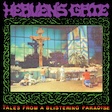 When the debut Heaven’s Gate EP dropped in 2023, it felt safe to assume that this group (featuring members from Municipal Waste, Reversal Of Man, Warthog and friggin’ Cannibal Corpse) might be a one-off project, a fun burst of no-frills / no-expectations hardcore-thrash from four life-long dedicated practitioners. Turns out they might actually be a band after all, which I chalk up to the fact that metal and hardcore simply do not get less fun with age, it’s our bodies that eventually can’t keep up (unless of course you’re Keith Morris). Of the aforementioned musical resumés, Tales From A Blistering Paradise probably bears greatest similarity to Municipal Waste’s catchy, quick-shifting thrash – “Much Worse” could go toe-to-toe with Anthrax and come out bruised but undefeated, for example. These guys are just so locked in to this style that it feels like a no-brainer, a bye-week of technical-yet-forceful metal / hardcore / thrash from guys who thankfully have nothing better to do with their lives. They’re still out there wearing Flux Of Pink Indians and Poison Idea shirts (scan the back cover for proof), probably even to their kids’ elementary-school graduations. Being middle-aged in 2025 is vastly different from any prior generation, it’s wild.
When the debut Heaven’s Gate EP dropped in 2023, it felt safe to assume that this group (featuring members from Municipal Waste, Reversal Of Man, Warthog and friggin’ Cannibal Corpse) might be a one-off project, a fun burst of no-frills / no-expectations hardcore-thrash from four life-long dedicated practitioners. Turns out they might actually be a band after all, which I chalk up to the fact that metal and hardcore simply do not get less fun with age, it’s our bodies that eventually can’t keep up (unless of course you’re Keith Morris). Of the aforementioned musical resumés, Tales From A Blistering Paradise probably bears greatest similarity to Municipal Waste’s catchy, quick-shifting thrash – “Much Worse” could go toe-to-toe with Anthrax and come out bruised but undefeated, for example. These guys are just so locked in to this style that it feels like a no-brainer, a bye-week of technical-yet-forceful metal / hardcore / thrash from guys who thankfully have nothing better to do with their lives. They’re still out there wearing Flux Of Pink Indians and Poison Idea shirts (scan the back cover for proof), probably even to their kids’ elementary-school graduations. Being middle-aged in 2025 is vastly different from any prior generation, it’s wild.
Impérieux Fena EP 12″ (Hessle Audio)
 New Hessle Audio, who dis? Bulgarian DJ/producer Impérieux graces the stage with four Hessle-ready tracks of post-dubstep brain-melt, big courtyard rhythms swinging into champagne-glass pyramids… you know the drill. The title track kicks things off impressively, as the swaggering beat meets two strange individuals on its stumble home: a curious little delivery droid and its gaseous, sawtoothed bully. They take turns crowding the zone with their respective bleeps and distorted squelches and I’m immediately, firmly on board. “Sickomode” is a title that demands to be lived up to, but its crackly dial-tones and punchy beat appear firmly under Impérieux’s control, more like “Sophisto-mode” if you ask me. “Saat” flips reggaeton into a day-spa resuscitation chamber at odds with some of the tangiest vocal snippets I’ve heard this year, while “Cawuso” closes on a tranced-out shuffle, a couple years ahead of your average slice of futurist techno. An EP worthy of carrying the Hessle Audio name if there ever was one.
New Hessle Audio, who dis? Bulgarian DJ/producer Impérieux graces the stage with four Hessle-ready tracks of post-dubstep brain-melt, big courtyard rhythms swinging into champagne-glass pyramids… you know the drill. The title track kicks things off impressively, as the swaggering beat meets two strange individuals on its stumble home: a curious little delivery droid and its gaseous, sawtoothed bully. They take turns crowding the zone with their respective bleeps and distorted squelches and I’m immediately, firmly on board. “Sickomode” is a title that demands to be lived up to, but its crackly dial-tones and punchy beat appear firmly under Impérieux’s control, more like “Sophisto-mode” if you ask me. “Saat” flips reggaeton into a day-spa resuscitation chamber at odds with some of the tangiest vocal snippets I’ve heard this year, while “Cawuso” closes on a tranced-out shuffle, a couple years ahead of your average slice of futurist techno. An EP worthy of carrying the Hessle Audio name if there ever was one.
Alex Kassian Body Singer 12″ (Pinchy & Friends)
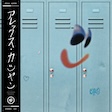 Alex Kassian’s “Body Singer” enjoyed the unfair advantage of being blasted through a fancy hi-fi system replete with a pair of majestic Klipsch speakers the first time I heard it. Even Psychedelic Horseshit would sound godlike on there as well I’m sure, but the title track of this new EP is absolutely gorgeous, even on my modest home rig. I had seen Kassian’s name bandied about in the progressive-techno, new-age-adjacent scene of hip modern producers, but “Body Singer” swings for the epic soft-rock fences, replete with live drums, guitar and piano. It’s readymade for the closing credits of the eventual biopic about Bono’s life, a tender and sumptuous sprawl over a girl-group-ready kick / snare combo. Frighteningly gorgeous and sure to be one of my favorite tunes of 2025. I’d happily take it by its lonesome, but Kassian fills up this EP with four other tunes, all operating on a similar Phil Collins / soft-core porn / Jan Hammer / Air axis. While heavily enhanced by today’s cutting-edge electronic production, Body Singer should be filed under “rock”, not “electronic” – “Trippy Gas”, for example, is a slick piece of Balearic kraut-rock, a direction Darkside could’ve gone in had they decided to cool down instead of heat up. “Mirror Of The Heart” is a steamy instrumental just begging for an original Kate Bush vocal to rocket it to the top of the Euro charts, and on the list of things that are possible nowadays, it doesn’t strike me as particularly low.
Alex Kassian’s “Body Singer” enjoyed the unfair advantage of being blasted through a fancy hi-fi system replete with a pair of majestic Klipsch speakers the first time I heard it. Even Psychedelic Horseshit would sound godlike on there as well I’m sure, but the title track of this new EP is absolutely gorgeous, even on my modest home rig. I had seen Kassian’s name bandied about in the progressive-techno, new-age-adjacent scene of hip modern producers, but “Body Singer” swings for the epic soft-rock fences, replete with live drums, guitar and piano. It’s readymade for the closing credits of the eventual biopic about Bono’s life, a tender and sumptuous sprawl over a girl-group-ready kick / snare combo. Frighteningly gorgeous and sure to be one of my favorite tunes of 2025. I’d happily take it by its lonesome, but Kassian fills up this EP with four other tunes, all operating on a similar Phil Collins / soft-core porn / Jan Hammer / Air axis. While heavily enhanced by today’s cutting-edge electronic production, Body Singer should be filed under “rock”, not “electronic” – “Trippy Gas”, for example, is a slick piece of Balearic kraut-rock, a direction Darkside could’ve gone in had they decided to cool down instead of heat up. “Mirror Of The Heart” is a steamy instrumental just begging for an original Kate Bush vocal to rocket it to the top of the Euro charts, and on the list of things that are possible nowadays, it doesn’t strike me as particularly low.
Lifeguard Ripped And Torn LP (Matador)
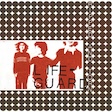 Hard not to root for Chicago’s Lifeguard, a trio of plucky kids fresh outta high school and already onto their second full-length for legendary indie label Matador. It’s the kinda feel-good story that will feature extremely geriatric (or AI holographic) forms of Thurston Moore and Dave Grohl whooping it up in the eventual feature-length rock-doc, but for now Lifeguard are still in the trenches, virtually unknown to the drooling masses of MJ Lenderman and Alex G. fans currently limping across American college campuses. If my senses are correct, Lifeguard will remain an underground phenomenon, as the music of Ripped And Torn is too buzzy and spastic for lamestream (you see what I did there?) audiences. Produced by No Age’s Randy Randall, this is truly a collection of weirdo rippers, songs that jostle between ’90s Numero-cosigned emo, private-press power-pop and the sort of antagonistic rock that Matador cut its teeth on. Vocalist / guitarist Kai Slater (who saves his collared-shirt pop elegance for solo-project Sharp Pins) sounds like The Rapture’s Luke Jenner when he gets too excited, the music often sounding like one of those great Homosexuals side-projects (George Harassment, Sara Goes Pop, Sir Alick & The Phraser, need I go on?) covering Times New Viking or Unwound. Anyway, back to the Lifeguard movie: I’m willing to accept an Anthony Fantano cameo (as “Rude Door Guy #2”) if Tim Heidecker signs on to play Gerald Cosloy again.
Hard not to root for Chicago’s Lifeguard, a trio of plucky kids fresh outta high school and already onto their second full-length for legendary indie label Matador. It’s the kinda feel-good story that will feature extremely geriatric (or AI holographic) forms of Thurston Moore and Dave Grohl whooping it up in the eventual feature-length rock-doc, but for now Lifeguard are still in the trenches, virtually unknown to the drooling masses of MJ Lenderman and Alex G. fans currently limping across American college campuses. If my senses are correct, Lifeguard will remain an underground phenomenon, as the music of Ripped And Torn is too buzzy and spastic for lamestream (you see what I did there?) audiences. Produced by No Age’s Randy Randall, this is truly a collection of weirdo rippers, songs that jostle between ’90s Numero-cosigned emo, private-press power-pop and the sort of antagonistic rock that Matador cut its teeth on. Vocalist / guitarist Kai Slater (who saves his collared-shirt pop elegance for solo-project Sharp Pins) sounds like The Rapture’s Luke Jenner when he gets too excited, the music often sounding like one of those great Homosexuals side-projects (George Harassment, Sara Goes Pop, Sir Alick & The Phraser, need I go on?) covering Times New Viking or Unwound. Anyway, back to the Lifeguard movie: I’m willing to accept an Anthony Fantano cameo (as “Rude Door Guy #2”) if Tim Heidecker signs on to play Gerald Cosloy again.
Living Dream Absolute Devotion 12″ (Inscrutable)
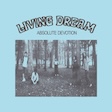 “Mist (Surrounds Me)”, “Seeing White”, both of which are songs on the debut EP from a band called “Living Dream”… did they actually come down from the clouds long enough to put Absolute Devotion to tape in boring ol’ Indianapolis? It was my understanding that Inscrutable intended to flip things in an indie-pop direction, and Living Dream certainly fit that bill, their dreamy, homespun twee-pop made best suited for sitting on an uncomfortable park bench at a prestigious university where you aren’t enrolled. Could’ve been a hidden Sarah Records release from 1988, or if it sounded like absolute garbage, a rare Crystal Stilts seven-inch. Real indie-hippie stuff, to the point where one guitarist also plays flute, and get this, they even let the drummer play a synth (is this the future Communists want??). The floaty, spacious nature of these tunes ensures that they waft in, and waft out, of my consciousness, but the title track actually sticks to the inside of my skull a lil’ bit, what with its Wooden Shjips-y bass-line, elemental guitar jangle and some tasteful soloing from the aforementioned flute. If I had a pipe, I’d put that in my pipe and smoke it.
“Mist (Surrounds Me)”, “Seeing White”, both of which are songs on the debut EP from a band called “Living Dream”… did they actually come down from the clouds long enough to put Absolute Devotion to tape in boring ol’ Indianapolis? It was my understanding that Inscrutable intended to flip things in an indie-pop direction, and Living Dream certainly fit that bill, their dreamy, homespun twee-pop made best suited for sitting on an uncomfortable park bench at a prestigious university where you aren’t enrolled. Could’ve been a hidden Sarah Records release from 1988, or if it sounded like absolute garbage, a rare Crystal Stilts seven-inch. Real indie-hippie stuff, to the point where one guitarist also plays flute, and get this, they even let the drummer play a synth (is this the future Communists want??). The floaty, spacious nature of these tunes ensures that they waft in, and waft out, of my consciousness, but the title track actually sticks to the inside of my skull a lil’ bit, what with its Wooden Shjips-y bass-line, elemental guitar jangle and some tasteful soloing from the aforementioned flute. If I had a pipe, I’d put that in my pipe and smoke it.
Manat Manat LP (no label)
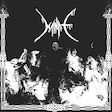 In the world of metal, there are people who have only ever exclusively listened to metal for their entire lives (the pure) and those who have possibly also listened to something else (the poseurs). I think I read somewhere that Manat feature at least someone involved in Brooklyn’s techno/experimental scene, but this is unverified info I’m sharing, even after a few failed attempts at googling the social-media-averse group – I’m really just trying to say that Manat might have personal sonic interests beyond the HTML pages of Encyclopaedia Metallum. They did finagle an eerie ambient interlude from none other than Drew McDowall here, but the sounds of Manat’s self-titled debut leave little room for accusations of half-hearted genre-dabbling. Manat is a ferocious ride that only relents in the form of occasional, thrilling guitar solos / interplay (see the end of “Contagion” or the opening of “The Cadaver”) – the brutality of their music is otherwise asphyxiating. They opt for a blasting gallop akin to Revenge, Blasphemy and Pissgrave, leaning towards the violent picking techniques of black-metal but delivered with a powerful low-end, plenty of double-kick and a vocalist who sounds like cans being crushed in a garbage disposal. The fat is masterfully flayed, leaving only the most potent and blood-soaked elements to crush/kill/destroy as necessary. It’s the level of quality we’ve come to expect from another Arthur Rizk joint (mixed and mastered).
In the world of metal, there are people who have only ever exclusively listened to metal for their entire lives (the pure) and those who have possibly also listened to something else (the poseurs). I think I read somewhere that Manat feature at least someone involved in Brooklyn’s techno/experimental scene, but this is unverified info I’m sharing, even after a few failed attempts at googling the social-media-averse group – I’m really just trying to say that Manat might have personal sonic interests beyond the HTML pages of Encyclopaedia Metallum. They did finagle an eerie ambient interlude from none other than Drew McDowall here, but the sounds of Manat’s self-titled debut leave little room for accusations of half-hearted genre-dabbling. Manat is a ferocious ride that only relents in the form of occasional, thrilling guitar solos / interplay (see the end of “Contagion” or the opening of “The Cadaver”) – the brutality of their music is otherwise asphyxiating. They opt for a blasting gallop akin to Revenge, Blasphemy and Pissgrave, leaning towards the violent picking techniques of black-metal but delivered with a powerful low-end, plenty of double-kick and a vocalist who sounds like cans being crushed in a garbage disposal. The fat is masterfully flayed, leaving only the most potent and blood-soaked elements to crush/kill/destroy as necessary. It’s the level of quality we’ve come to expect from another Arthur Rizk joint (mixed and mastered).
Mangled State Learn To Suffer LP (Youth Attack)
 Like the rest of the punk-derived underground, Youth Attack has worked with a number of studio-only projects through recent years, from various off-putting black-metal units to, even way back in the day, Mark McCoy’s own Virgin Mega Whore project (ripe for a comprehensive retrospective collection). Mangled State are another such studio creation, the duo of drummer / vocalist Josh Everett and guitarist (and presumably bass-guitarist) H. Walker, hailing from Houston, Texas (whose Insect Warfare made grind-core redundant some eighteen years ago). Mangled State’s music looks back to the extreme hardcore of the mid to late ’90s, the stuff of Slap A Ham, Sound Pollution and anything worthy of inclusion within Vacuum’s distro list. In many ways, it’s my platonic ideal of hardcore – that is to say, perfectly suited for inclusion on a Cry Now, Cry Later or Reality compilation. Delivered with the speaker-irritating temperament of a low-fidelity box recording, everything is coated in some manner of filth, from the hi-hats to the sludgy bass to the vocals, which have a “choking on sand” quality. Imagine the songs of Despise You and Jenny Piccolo with the recording quality of Stapled Shut and Laceration, which is a very fun way to describe a new-ish hardcore band, one that revels in the anti-social properties of hardcore-punk as opposed to the stylish, Instagrammable properties (like limited-edition streetwear drops and graffiti tags and self-aware hard-pitting). Let today’s kids revel in that surface-level crap – I’ll be here, alone in my room in the summer with the lights off and no air conditioning, alternating between Learn To Suffer and my well-worn copy of the Peter Mangalore five-inch.
Like the rest of the punk-derived underground, Youth Attack has worked with a number of studio-only projects through recent years, from various off-putting black-metal units to, even way back in the day, Mark McCoy’s own Virgin Mega Whore project (ripe for a comprehensive retrospective collection). Mangled State are another such studio creation, the duo of drummer / vocalist Josh Everett and guitarist (and presumably bass-guitarist) H. Walker, hailing from Houston, Texas (whose Insect Warfare made grind-core redundant some eighteen years ago). Mangled State’s music looks back to the extreme hardcore of the mid to late ’90s, the stuff of Slap A Ham, Sound Pollution and anything worthy of inclusion within Vacuum’s distro list. In many ways, it’s my platonic ideal of hardcore – that is to say, perfectly suited for inclusion on a Cry Now, Cry Later or Reality compilation. Delivered with the speaker-irritating temperament of a low-fidelity box recording, everything is coated in some manner of filth, from the hi-hats to the sludgy bass to the vocals, which have a “choking on sand” quality. Imagine the songs of Despise You and Jenny Piccolo with the recording quality of Stapled Shut and Laceration, which is a very fun way to describe a new-ish hardcore band, one that revels in the anti-social properties of hardcore-punk as opposed to the stylish, Instagrammable properties (like limited-edition streetwear drops and graffiti tags and self-aware hard-pitting). Let today’s kids revel in that surface-level crap – I’ll be here, alone in my room in the summer with the lights off and no air conditioning, alternating between Learn To Suffer and my well-worn copy of the Peter Mangalore five-inch.
Miradasvacas En Perpetua LP (South Of North)
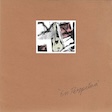 Amsterdam’s South Of North is a guaranteed weird time – the label is a proud promoter of music that defies easy classification. Fitting then that they hooked up with the Spanish duo Miradasvacas, who established their own crusty trip care with their full-length debut Of No Fixed Abode. En Perpetua maintains a satisfyingly uncharted path. There’s violin, Spanish guitar, harmonica, a keyboard or two, spoken/manipulated vocals and an occasional field-recording credited, with “tape” the sole, uhh, instrument attributed to every track here. I suppose you could plot Miradasvacas on a post-The Shadow Ring axis, where dreary domestics slowly give way to song-form (or at least repeated sonic motifs), but there’s a tender beauty, and a defiance of overt amateurism, that reveal unique shapes from within their murky depths. I’m also reminded of Greymouth, another inscrutable duo working from their own private and isolated sense of logic, though the music of Miradasvacas never irritates or scratches – antagonism is not part of their repertoire. Tracks like “En Perpetua” and “Daddy’s Booze” deliver a smoked-out serenity, the hypnotic strings (on loop?) and direct-to-tape interferences conjuring images of rural, open-air gatherings late at night, traditional songs attempted but players too blitzed to find steady footing. Tomorrow morning, who will you find waking up in the sleeping bag beside you?
Amsterdam’s South Of North is a guaranteed weird time – the label is a proud promoter of music that defies easy classification. Fitting then that they hooked up with the Spanish duo Miradasvacas, who established their own crusty trip care with their full-length debut Of No Fixed Abode. En Perpetua maintains a satisfyingly uncharted path. There’s violin, Spanish guitar, harmonica, a keyboard or two, spoken/manipulated vocals and an occasional field-recording credited, with “tape” the sole, uhh, instrument attributed to every track here. I suppose you could plot Miradasvacas on a post-The Shadow Ring axis, where dreary domestics slowly give way to song-form (or at least repeated sonic motifs), but there’s a tender beauty, and a defiance of overt amateurism, that reveal unique shapes from within their murky depths. I’m also reminded of Greymouth, another inscrutable duo working from their own private and isolated sense of logic, though the music of Miradasvacas never irritates or scratches – antagonism is not part of their repertoire. Tracks like “En Perpetua” and “Daddy’s Booze” deliver a smoked-out serenity, the hypnotic strings (on loop?) and direct-to-tape interferences conjuring images of rural, open-air gatherings late at night, traditional songs attempted but players too blitzed to find steady footing. Tomorrow morning, who will you find waking up in the sleeping bag beside you?
Rick Myers, Andy Votel & Sean Canty Human Engineering LP (Few Crackles)
 Much to my delight, Human Engineering has the look and feel of a seminal Demdike Stare record. The cover’s stark black and white imagery of a high-jumper in some sort of empty cathedral doesn’t quite prepare you for the sounds made by long-time chums Rick Myers, Andy Votel and Sean Canty, so much as it establishes a zone where unexpected freakery is fair game. Canty is of course half of Demdike Stare (and Votel designed the art for many of those early records), but Human Engineering is free from the strictures of electronic music and rhythm in general. Most of it seems to center around spoken-word through a vibrating tube as pianos are plucked, a cymbal is bowed and tapes are sparingly deployed. It hearkens back to the modernist avant-garde of the ’70s, when freaks like Luc Ferrari, Alvin Lucier and Walter Marchetti were held in high academic esteem no matter how warped or wacky their experiments became. It certainly bears strong markings of traditional musique concrète, though the album also sounds very much like a band, multiple people performing simultaneously and in tandem for a unified intent. It might take a second to get into the proper headspace – opener “Boundary Simulation” does not provide any handy footholds – but by the time I’m letting the two b-side tracks ramble outward, I’m already getting hyped to start it over from the beginning. Few Crackles doesn’t miss!
Much to my delight, Human Engineering has the look and feel of a seminal Demdike Stare record. The cover’s stark black and white imagery of a high-jumper in some sort of empty cathedral doesn’t quite prepare you for the sounds made by long-time chums Rick Myers, Andy Votel and Sean Canty, so much as it establishes a zone where unexpected freakery is fair game. Canty is of course half of Demdike Stare (and Votel designed the art for many of those early records), but Human Engineering is free from the strictures of electronic music and rhythm in general. Most of it seems to center around spoken-word through a vibrating tube as pianos are plucked, a cymbal is bowed and tapes are sparingly deployed. It hearkens back to the modernist avant-garde of the ’70s, when freaks like Luc Ferrari, Alvin Lucier and Walter Marchetti were held in high academic esteem no matter how warped or wacky their experiments became. It certainly bears strong markings of traditional musique concrète, though the album also sounds very much like a band, multiple people performing simultaneously and in tandem for a unified intent. It might take a second to get into the proper headspace – opener “Boundary Simulation” does not provide any handy footholds – but by the time I’m letting the two b-side tracks ramble outward, I’m already getting hyped to start it over from the beginning. Few Crackles doesn’t miss!
Necron 9 People Die LP (Unlawful Assembly)
 My band was supposed to play a show with Necron 9 in May, but they had to cancel as their guitarist broke his arm skateboarding. Is there a cleaner seal of hardcore authenticity than that? This Milwaukee hardcore band are young and reckless in ways that benefit their manic hardcore-punk, which feels simultaneously loose (they’ve got style) and tight (they’ve got some oomph). They’ve got all the tempos down, from sluggish to breakneck, sometimes in the course of a single song (check the title track). Reminds me of a variety of eras and sounds, from early Mutha ala Fatal Rage to Code 13; there’s some crust here, but in the manner that crust develops when you’re bailing on a mini-ramp, not living in a punk squat in Leeds. It’s a killer sound regardless, but some of these tracks have really stuck with me, like the easy-to-remember sing-along of “Not Me” to the Poison Idea-esque hill-bomb of “I Kill Fucker”, which could approximate Discharge if it didn’t sound so much like American hardcore kids having fun. Here I am, doing my best to put together a paragraph-length review of People Die, when Bandcamp user “guavalover89” succinctly nailed it (punctuation and spelling is theirs): “Saw Them Live in a Skateshop Alleyway. HelllyeayhahhaGgOUGHHHH”
My band was supposed to play a show with Necron 9 in May, but they had to cancel as their guitarist broke his arm skateboarding. Is there a cleaner seal of hardcore authenticity than that? This Milwaukee hardcore band are young and reckless in ways that benefit their manic hardcore-punk, which feels simultaneously loose (they’ve got style) and tight (they’ve got some oomph). They’ve got all the tempos down, from sluggish to breakneck, sometimes in the course of a single song (check the title track). Reminds me of a variety of eras and sounds, from early Mutha ala Fatal Rage to Code 13; there’s some crust here, but in the manner that crust develops when you’re bailing on a mini-ramp, not living in a punk squat in Leeds. It’s a killer sound regardless, but some of these tracks have really stuck with me, like the easy-to-remember sing-along of “Not Me” to the Poison Idea-esque hill-bomb of “I Kill Fucker”, which could approximate Discharge if it didn’t sound so much like American hardcore kids having fun. Here I am, doing my best to put together a paragraph-length review of People Die, when Bandcamp user “guavalover89” succinctly nailed it (punctuation and spelling is theirs): “Saw Them Live in a Skateshop Alleyway. HelllyeayhahhaGgOUGHHHH”
Nuke Watch Wait For It… LP (Impatience)
 Real heads understand that the best versions of Tetris and Dr. Mario were the head-to-head two-player modes. The Brooklyn duo Nuke Watch swap out Nintendo controllers for samplers and behave similarly, offering a lively sparring of percussive sounds from an abundance of sample-packs across two side-long tracks. A-side “Supersonic Percussion Anagram” dips and dives and stutters throughout, a variety of short hand-drum and alt-percussion samples deployed in rhythmic patterns and unintuitive volleys. It’s over twenty minutes long, but Nuke Watch keep it moving, digging deep in their samplers’ pockets to keep things fresh. Bryce Hackford joins the duo for the b-side cut “Think Peace”, which maintains more of a fluid lurch than the choppy opening cut. Pitched metal percussion is walloped, flipped and dropped, a form of Gamelan held together by superglue, tape and rubber bands. It often feels like a species of music that is wrong to exist, like a woodchuck with deer antlers and a feathered tail, but that sort of unwieldy mutation is part of the fun. Wait For It… is definitely a fun one, even if it seems more likely that the duo (and trio) responsible for making the music had a bit more fun than those of us who sat around listening to it. Just like Dr. Mario, actually.
Real heads understand that the best versions of Tetris and Dr. Mario were the head-to-head two-player modes. The Brooklyn duo Nuke Watch swap out Nintendo controllers for samplers and behave similarly, offering a lively sparring of percussive sounds from an abundance of sample-packs across two side-long tracks. A-side “Supersonic Percussion Anagram” dips and dives and stutters throughout, a variety of short hand-drum and alt-percussion samples deployed in rhythmic patterns and unintuitive volleys. It’s over twenty minutes long, but Nuke Watch keep it moving, digging deep in their samplers’ pockets to keep things fresh. Bryce Hackford joins the duo for the b-side cut “Think Peace”, which maintains more of a fluid lurch than the choppy opening cut. Pitched metal percussion is walloped, flipped and dropped, a form of Gamelan held together by superglue, tape and rubber bands. It often feels like a species of music that is wrong to exist, like a woodchuck with deer antlers and a feathered tail, but that sort of unwieldy mutation is part of the fun. Wait For It… is definitely a fun one, even if it seems more likely that the duo (and trio) responsible for making the music had a bit more fun than those of us who sat around listening to it. Just like Dr. Mario, actually.
Phobophylptix Phobophylptix 12″ (Radical Documents)
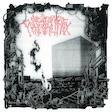 Now based in Chicago, the Radical Documents label has stayed true to its name, releasing music consistently at odds with the world. If the label is following a coherent script, it’s news to me (and that’s a good part of the fun), so I wasn’t sure if I should take the anarchy and equality symbols on the back cover of Phobophylptix’s debut at face value. Are they actual political crust, or taking the piss? Turns out that Phonophlyptix are true to the form, playing a manic form of grind-, crust- and thrash-infused hardcore. The music itself is mostly unremarkable – most of these songs dip into a mid-tempo d-beat with fast, thrashy riffs, which is a particular style of playing that doesn’t usually resonate strongly with my own personal tastes. Very flipped-brim trucker-cap, if you know what I mean, somewhere in the manner of What Happens Next?, Escuela Grind and Weekend Nachos. I’ll give them credit for the unwieldy band name, though – try as I might, I know in my heart I will never successfully remember it – and in the context of their Radical Documents brethren (the scalding riff-rock of Blues Ambush, the avant noise of Twig Harper and Max Nordile, etc.), Phobophylptix are another unexpected choice in a catalog full of unexpected choices.
Now based in Chicago, the Radical Documents label has stayed true to its name, releasing music consistently at odds with the world. If the label is following a coherent script, it’s news to me (and that’s a good part of the fun), so I wasn’t sure if I should take the anarchy and equality symbols on the back cover of Phobophylptix’s debut at face value. Are they actual political crust, or taking the piss? Turns out that Phonophlyptix are true to the form, playing a manic form of grind-, crust- and thrash-infused hardcore. The music itself is mostly unremarkable – most of these songs dip into a mid-tempo d-beat with fast, thrashy riffs, which is a particular style of playing that doesn’t usually resonate strongly with my own personal tastes. Very flipped-brim trucker-cap, if you know what I mean, somewhere in the manner of What Happens Next?, Escuela Grind and Weekend Nachos. I’ll give them credit for the unwieldy band name, though – try as I might, I know in my heart I will never successfully remember it – and in the context of their Radical Documents brethren (the scalding riff-rock of Blues Ambush, the avant noise of Twig Harper and Max Nordile, etc.), Phobophylptix are another unexpected choice in a catalog full of unexpected choices.
Molly Raben In The Kingdom Of Flowers LP (Love’s Devotee)
 Those with an open mind and adventurous spirit will want to spend some time with the Love’s Devotee label, a diamond in the cultureless sprawl that surrounds its residence in Bethlehem, PA. For the label’s fourth release, they offer the debut full-length from Minneapolis-based organist Molly Raben. While the concept of contemporary avant-garde organ music might have you readying your Ovaltine and orthopedic pillow, Raben is not interested in drones or experiments in duration (at least in the case of In The Kingdom Of Flowers, her debut LP). Instead, she sits back, gets comfy and rips that dusty old organ a new one, expelling a continuous flow of musical information that darts and dwells in a variety of unexpected places. Among cosmic-induced arpeggios and church-y flights of fancy, she finds time to dwell in a rendition of Wagner’s “Bridal Chorus”, the most “are you fucking with me?” moment I’ve had in listening to new music since watching Haywire’s “Clocktower Place” video. Even when her music goes dark (and there are certain passages that would spook Pierre Henry), her human touch and the imperfect recording quality maintain a lifeline, ensuring that her music sounds like a real thing in the room with you that you can touch, not some sanctimonious piece of disinfected academia. Those “here comes the bride” parts, though… Phil Anselmo wishes he had balls that big.
Those with an open mind and adventurous spirit will want to spend some time with the Love’s Devotee label, a diamond in the cultureless sprawl that surrounds its residence in Bethlehem, PA. For the label’s fourth release, they offer the debut full-length from Minneapolis-based organist Molly Raben. While the concept of contemporary avant-garde organ music might have you readying your Ovaltine and orthopedic pillow, Raben is not interested in drones or experiments in duration (at least in the case of In The Kingdom Of Flowers, her debut LP). Instead, she sits back, gets comfy and rips that dusty old organ a new one, expelling a continuous flow of musical information that darts and dwells in a variety of unexpected places. Among cosmic-induced arpeggios and church-y flights of fancy, she finds time to dwell in a rendition of Wagner’s “Bridal Chorus”, the most “are you fucking with me?” moment I’ve had in listening to new music since watching Haywire’s “Clocktower Place” video. Even when her music goes dark (and there are certain passages that would spook Pierre Henry), her human touch and the imperfect recording quality maintain a lifeline, ensuring that her music sounds like a real thing in the room with you that you can touch, not some sanctimonious piece of disinfected academia. Those “here comes the bride” parts, though… Phil Anselmo wishes he had balls that big.
The Real Losers Time To Lose LP (Total Punk)
 Total Punk is forever, which means they’re willing to delve back into the dark days of 2002 and pluck out some appropriately harebrained punk rock for our reconsideration. The Real Losers were playing their traditional budget-rock garage-punk in the UK of all places, a trio of British party-punk idiots more or less indistinguishable from their American party-punk idiot counterparts. And like any good punks, they recorded a ton of interchangeable songs with suitable themes like boredom (“Nothing To Do”), fun (“Gonna Be A Wild Weekend”) dummies (“She Was Dumb”) and high school rock n’ roll (“High School Rock N’ Roll”). The drummer insists on playing a push-beat throughout (the snare firmly on the one), which gives their tunes a stilted sort of energy, better-suited to the Twist and the Watusi than pogoing and slamming. I enjoy the overtly blown-out songs towards the middle of the second side, but let’s be honest, it’s all kinda the same, just as it should be. Do you want intellectual artistic surprises from The Real Losers, or a guy in a Mick Jagger haircut and his two outcast friends playing their rude and primitive punk rock til the bobbies come knocking on the basement door?
Total Punk is forever, which means they’re willing to delve back into the dark days of 2002 and pluck out some appropriately harebrained punk rock for our reconsideration. The Real Losers were playing their traditional budget-rock garage-punk in the UK of all places, a trio of British party-punk idiots more or less indistinguishable from their American party-punk idiot counterparts. And like any good punks, they recorded a ton of interchangeable songs with suitable themes like boredom (“Nothing To Do”), fun (“Gonna Be A Wild Weekend”) dummies (“She Was Dumb”) and high school rock n’ roll (“High School Rock N’ Roll”). The drummer insists on playing a push-beat throughout (the snare firmly on the one), which gives their tunes a stilted sort of energy, better-suited to the Twist and the Watusi than pogoing and slamming. I enjoy the overtly blown-out songs towards the middle of the second side, but let’s be honest, it’s all kinda the same, just as it should be. Do you want intellectual artistic surprises from The Real Losers, or a guy in a Mick Jagger haircut and his two outcast friends playing their rude and primitive punk rock til the bobbies come knocking on the basement door?
Colin Andrew Sheffield Serenade LP (Elevator Bath)
 You know when a guy uses his full name like this, there’s no joking around (David Alan Greer being the exception to the rule). Colin Andrew Sheffield is a long-term experimenter of electronic music forms, often released on his own Elevator Bath label, and this new one called Serenade leans into plunderphonics-as-drone techniques. He’s not the first to sample old orchestral and jazz records in an attempt to reduce them down to their essence and smudge it like ink, but it’s a very pleasant sound in his capable hands. Strings swell up from the bottom of a dark pool of water, drones vibrate like the hull of a doomed cargo plane, the ghosts of ghosts walk in circles across sheet-metal… he conjures these scenes and more like them here. Sheffield shares his ideas in manageable chunks, any given idea allowed five minutes or so to present itself without overstaying its welcome. I could probably get lost in the tomb-raided jazz of “Whirlpool” for a full side of an LP, but I don’t mind that he cuts the trip to a length that the arms dealers over at Spotify are less likely to frown upon. Has anyone ever tried this technique with black- or death-metal records yet? Would love to hear an ambient-droner’s remix of some Immortal or Beherit… y’all are lucky I don’t have any musical talent or I’d be cashing in on my own brilliant ideas.
You know when a guy uses his full name like this, there’s no joking around (David Alan Greer being the exception to the rule). Colin Andrew Sheffield is a long-term experimenter of electronic music forms, often released on his own Elevator Bath label, and this new one called Serenade leans into plunderphonics-as-drone techniques. He’s not the first to sample old orchestral and jazz records in an attempt to reduce them down to their essence and smudge it like ink, but it’s a very pleasant sound in his capable hands. Strings swell up from the bottom of a dark pool of water, drones vibrate like the hull of a doomed cargo plane, the ghosts of ghosts walk in circles across sheet-metal… he conjures these scenes and more like them here. Sheffield shares his ideas in manageable chunks, any given idea allowed five minutes or so to present itself without overstaying its welcome. I could probably get lost in the tomb-raided jazz of “Whirlpool” for a full side of an LP, but I don’t mind that he cuts the trip to a length that the arms dealers over at Spotify are less likely to frown upon. Has anyone ever tried this technique with black- or death-metal records yet? Would love to hear an ambient-droner’s remix of some Immortal or Beherit… y’all are lucky I don’t have any musical talent or I’d be cashing in on my own brilliant ideas.
Siyahkal Days of Smoke and Ash / روزای دود و خاکستر LP (Static Shock)
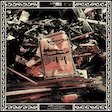 If there’s one good thing about our modern time, it’s that the horrific violence happening around the globe is blatantly plain to see. Previously-closed eyes are opening to the crimes against humanity that are being committed as well as who the actual perpetrators are, and info sources beyond that of typical corporate pundits are a click away – ignorance is no longer a casual excuse. Toronto’s Siyahkal are one of those valuable voices, and they deliver their message in the immediate and system-shocking form of hardcore-punk. Iranian-born vocalist Kasra Goodarznezhad sings in Farsi, and is kind enough to offer English lyric translations for us monolingual yokels, so that the breathless delivery of “Beshin Pasho / بشین پاشو” can be understood as well as felt (if not quite sung-along to). The songs themselves are staunchly modern in that sort of ugly pogo-core way that the kids seem addicted to, duty-free riffs in the manner of Bib, S.H.I.T., Sexpill, Slant and a few hundred others, but hardcore is as useful as an underground, community-oriented delivery-system as it is an art form, and what Siyahkal lack in musical originality they make up for in passion, clarity of purpose and some unusual vocal choices (that repeated line in “Karbobalaa / کربُبَلا” is a memorable one). Fascists and warmongerers wish so desperately that they knew how to rage like this, but there’s satisfaction in knowing they’ll never come close.
If there’s one good thing about our modern time, it’s that the horrific violence happening around the globe is blatantly plain to see. Previously-closed eyes are opening to the crimes against humanity that are being committed as well as who the actual perpetrators are, and info sources beyond that of typical corporate pundits are a click away – ignorance is no longer a casual excuse. Toronto’s Siyahkal are one of those valuable voices, and they deliver their message in the immediate and system-shocking form of hardcore-punk. Iranian-born vocalist Kasra Goodarznezhad sings in Farsi, and is kind enough to offer English lyric translations for us monolingual yokels, so that the breathless delivery of “Beshin Pasho / بشین پاشو” can be understood as well as felt (if not quite sung-along to). The songs themselves are staunchly modern in that sort of ugly pogo-core way that the kids seem addicted to, duty-free riffs in the manner of Bib, S.H.I.T., Sexpill, Slant and a few hundred others, but hardcore is as useful as an underground, community-oriented delivery-system as it is an art form, and what Siyahkal lack in musical originality they make up for in passion, clarity of purpose and some unusual vocal choices (that repeated line in “Karbobalaa / کربُبَلا” is a memorable one). Fascists and warmongerers wish so desperately that they knew how to rage like this, but there’s satisfaction in knowing they’ll never come close.
Ultimate Disaster For Progress… LP (Grave Mistake)
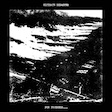 Richmond is pound-for-pound one of the densest American cities when it comes to hardcore-punk. Not sure why that is exactly… cool record shops like Vinyl Conflict? Midway proximity to DC and the true South? Cheap(-ish) rent? GWAR? Whatever the case, you don’t have to venture far to discover some new actively-raging thing there, like d-beat trio Ultimate Disaster for instance. They play it extremely by-the-books, opting for a thick, buzzing sound, with tight and non-flashy drumming and vocals that deliver the bare minimum syllables for maximum impact. The precedent is certainly Discharge, and I’m not sensing that Ultimate Disaster found anything in that original formula worth switching up. As far as pointless bloodshed and the rotten fruit of capitalism are concerned, we might as well still be in 1981, so why should the music change? Kind of hard to say much beyond that – you already know what d-beat sounds like, and For Progress… rips through its nine orthodox tracks with titles like “Mass Produced Hatred”, “Never Ending Slaughter” and “March To Oblivion”, most of which you can easily sing along with as the title is also the chorus. Grave for sure, but not a mistake.
Richmond is pound-for-pound one of the densest American cities when it comes to hardcore-punk. Not sure why that is exactly… cool record shops like Vinyl Conflict? Midway proximity to DC and the true South? Cheap(-ish) rent? GWAR? Whatever the case, you don’t have to venture far to discover some new actively-raging thing there, like d-beat trio Ultimate Disaster for instance. They play it extremely by-the-books, opting for a thick, buzzing sound, with tight and non-flashy drumming and vocals that deliver the bare minimum syllables for maximum impact. The precedent is certainly Discharge, and I’m not sensing that Ultimate Disaster found anything in that original formula worth switching up. As far as pointless bloodshed and the rotten fruit of capitalism are concerned, we might as well still be in 1981, so why should the music change? Kind of hard to say much beyond that – you already know what d-beat sounds like, and For Progress… rips through its nine orthodox tracks with titles like “Mass Produced Hatred”, “Never Ending Slaughter” and “March To Oblivion”, most of which you can easily sing along with as the title is also the chorus. Grave for sure, but not a mistake.
Vaxine / The Last Survivors Split EP 7″ (General Speech)
 It takes two, maybe three notes of Vaxine’s “War Criminals” to discern that this is a spiky punk band with a shot of Motörhead in their veins. What’s not to like? They take that sort of exhaust-breath attitude and deliver it, fully charged, with aggro punk of a righteously political nature, like the underrated Germ Attak covering Defiance. “War Criminals” is a certified banger, and “Conditional Freedom” is nearly as catchy, a boisterous spin on The Exploited’s earliest recordings. “Thread Of Hate” opens with a rowdy, crowd-sloshing intro before it busts into another couple minutes of exquisite pogo punk. I’d be satisfied with Vaxine alone, but General Speech had other things in mind, pairing the New York City group with Tokyo’s The Last Survivors. Their recording is hotter to the touch – when the guitar plays a lead, it takes no prisoners – and “Teenage Days” is a tad slower, relatively speaking, in a street-punk frame of mind. Their take on The Insane’s 1981 Riot City tune “Dead And Gone” respectfully keeps the kick drum in the front of the mix, as loose and raw as the original but packing a bit more heft. If you’ve been writing a thesis on why it’s a bad idea to be punk, this split is going to set your work back by months if not years.
It takes two, maybe three notes of Vaxine’s “War Criminals” to discern that this is a spiky punk band with a shot of Motörhead in their veins. What’s not to like? They take that sort of exhaust-breath attitude and deliver it, fully charged, with aggro punk of a righteously political nature, like the underrated Germ Attak covering Defiance. “War Criminals” is a certified banger, and “Conditional Freedom” is nearly as catchy, a boisterous spin on The Exploited’s earliest recordings. “Thread Of Hate” opens with a rowdy, crowd-sloshing intro before it busts into another couple minutes of exquisite pogo punk. I’d be satisfied with Vaxine alone, but General Speech had other things in mind, pairing the New York City group with Tokyo’s The Last Survivors. Their recording is hotter to the touch – when the guitar plays a lead, it takes no prisoners – and “Teenage Days” is a tad slower, relatively speaking, in a street-punk frame of mind. Their take on The Insane’s 1981 Riot City tune “Dead And Gone” respectfully keeps the kick drum in the front of the mix, as loose and raw as the original but packing a bit more heft. If you’ve been writing a thesis on why it’s a bad idea to be punk, this split is going to set your work back by months if not years.
Water Damage Instruments 2xLP (12XU / Cardinal Fuzz)
 I get the sense that Water Damage, as a loosely-knit, amorphous large-ensemble entity, did not assemble with grand intentions. When this crew of Austin-centered musicians-in-other-bands initially got together to jam, it seemed that the purpose was simply to lock-in and have some easy fun, but 12XU (and an ever-growing audience) has demanded more, leading to two LPs, two double LPs and a smattering of tapes and EPs in the ensuing four years (not to mention a slot on the prestigious American experimental / psych fest Big Ears). Sometimes it’s the easiest trick that resonates the most – let this be a lesson to the fame-hungry guitarists out there who think they need more notes rather than less – as there is apparently a sustainable audience for what Water Damage does, which is pound out simple, slow, repetitive, about-the-journey-not-the-destination jams ’til the cows come home. It’s not true that if you’ve heard one Water Damage piece, you’ve heard them all – the root notes, tempos, instrumentation and drum patterns do change from jam to jam – but the basic concept is unwavering, a band that basically anyone could do, but Water Damage have actually gone and done. I’m kind of on the fence at this point with it myself… their tracks accomplish precisely what they set out to do, and sure it sounds cool, but I feel that “yup, I get it, what else?” sensation bubbling up in the back of my brain as I flip any given Water Damage record from one side to the next. The difference on Instruments is that Patrick Shiroishi and David Grubbs guest on sax and guitar respectively – maybe that could be an intriguing path forward for Water Damage, drone-rockers as hosts to a revolving door of special guests? If you told me the first season of Late Night with Water Damage was set to feature Tonie Joy, Lydia Lunch, Elucid, Connor O’Malley, Penn & Teller and Emeril Lagasse, I would make it a point to tune in.
I get the sense that Water Damage, as a loosely-knit, amorphous large-ensemble entity, did not assemble with grand intentions. When this crew of Austin-centered musicians-in-other-bands initially got together to jam, it seemed that the purpose was simply to lock-in and have some easy fun, but 12XU (and an ever-growing audience) has demanded more, leading to two LPs, two double LPs and a smattering of tapes and EPs in the ensuing four years (not to mention a slot on the prestigious American experimental / psych fest Big Ears). Sometimes it’s the easiest trick that resonates the most – let this be a lesson to the fame-hungry guitarists out there who think they need more notes rather than less – as there is apparently a sustainable audience for what Water Damage does, which is pound out simple, slow, repetitive, about-the-journey-not-the-destination jams ’til the cows come home. It’s not true that if you’ve heard one Water Damage piece, you’ve heard them all – the root notes, tempos, instrumentation and drum patterns do change from jam to jam – but the basic concept is unwavering, a band that basically anyone could do, but Water Damage have actually gone and done. I’m kind of on the fence at this point with it myself… their tracks accomplish precisely what they set out to do, and sure it sounds cool, but I feel that “yup, I get it, what else?” sensation bubbling up in the back of my brain as I flip any given Water Damage record from one side to the next. The difference on Instruments is that Patrick Shiroishi and David Grubbs guest on sax and guitar respectively – maybe that could be an intriguing path forward for Water Damage, drone-rockers as hosts to a revolving door of special guests? If you told me the first season of Late Night with Water Damage was set to feature Tonie Joy, Lydia Lunch, Elucid, Connor O’Malley, Penn & Teller and Emeril Lagasse, I would make it a point to tune in.
Al Wootton Rhythm Archives LP (Trule)
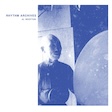 Will they just let anybody into the rare synth archive who asks nicely? I’m still enjoying that Dorian Concept album from a few months ago where he invaded the Swiss Museum for Electronic Music Instruments, and now Al Wootton has gained access to the collection of rare drum machines housed at the Melbourne Electronic Sound Studio. I love this as a concept – electronic producer runs wild through museum-grade collection of vintage gear – and Rhythm Archives doesn’t disappoint. As you can guess, a good number of different drum machine sounds are let loose here, generally one at a time, single-file. The point is the unique textures, programmed rhythms and obscure-vintage sounds of these priceless pieces of machinery, so Wootton gives these archival rhythm boxes plenty of room to breathe. It’s particularly noteworthy on “Slow Rock”, whose leisurely pace, empty space and distorted spoken-word snippets recall Beau Wanzer in a lab coat and goggles. The majority of the album feels like a lost post-punk experiment from 1980, cheapo (at the time) drum machines pushed into weird angles much how Scattered Order and Fad Gadget liked to do it. “Foxtrot” and “No Selected” are two other favorites, but there’s no disappointment to be had here by any fan of minimal, rhythmic post-punk and its less-presentable offshoots.
Will they just let anybody into the rare synth archive who asks nicely? I’m still enjoying that Dorian Concept album from a few months ago where he invaded the Swiss Museum for Electronic Music Instruments, and now Al Wootton has gained access to the collection of rare drum machines housed at the Melbourne Electronic Sound Studio. I love this as a concept – electronic producer runs wild through museum-grade collection of vintage gear – and Rhythm Archives doesn’t disappoint. As you can guess, a good number of different drum machine sounds are let loose here, generally one at a time, single-file. The point is the unique textures, programmed rhythms and obscure-vintage sounds of these priceless pieces of machinery, so Wootton gives these archival rhythm boxes plenty of room to breathe. It’s particularly noteworthy on “Slow Rock”, whose leisurely pace, empty space and distorted spoken-word snippets recall Beau Wanzer in a lab coat and goggles. The majority of the album feels like a lost post-punk experiment from 1980, cheapo (at the time) drum machines pushed into weird angles much how Scattered Order and Fad Gadget liked to do it. “Foxtrot” and “No Selected” are two other favorites, but there’s no disappointment to be had here by any fan of minimal, rhythmic post-punk and its less-presentable offshoots.

